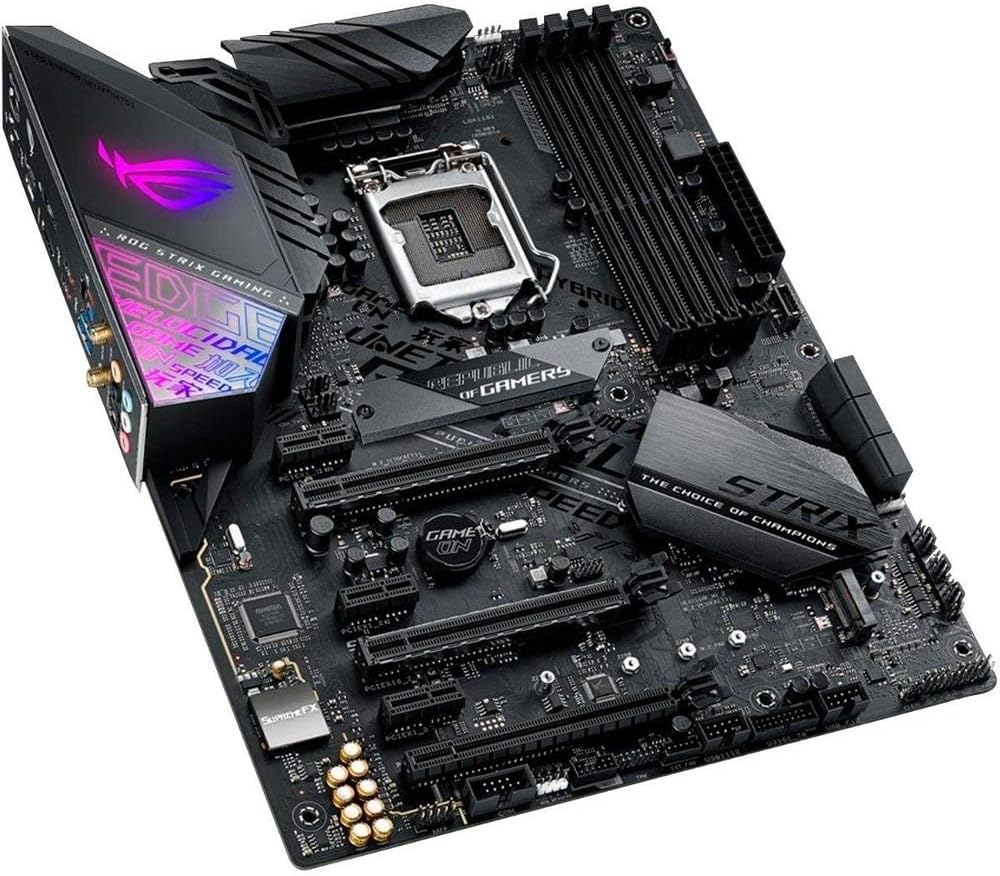
Table of Contents
Welcome to the beginning of a new era—the age of cryptocurrency. If you’re unfamiliar with the term “cryptocurrency” (though it’s hard to imagine in today’s digital world), now is the perfect opportunity to join the evolution of finance (AKA The Cryptocurrency Revolution).
As cryptocurrency transcends its niche status to become a mainstream financial medium, it’s time to delve into the exciting world where Bitcoin and other digital currencies redefine how we perceive money.
What is Cryptocurrency?
Cryptocurrency, a decade ago, was a buzzword in tech circles. Today, it has become a part of the mainstream financial conversation. Starting as an untraceable, unregulated entity that was viewed as a volatile investment option, it has been met with skepticism.
Yet, fast forward to today, cryptocurrency has fueled a financial revolution that’s set to change how we interact with money.

Cryptocurrency as Mainstream Currency
But what does it mean for cryptocurrency to transition from a speculative asset to a mainstream currency? It means your day-to-day expenses—your morning coffee, weekly groceries, even your next car—could be purchased using Bitcoin or Ethereum. It means businesses around the globe acknowledging digital currencies as a valid form of payment. Essentially, it signals a new era where cryptocurrency has outgrown its past and permeates our lives.

Rise of Cryptocurrency: Cryptocurrency Revolution
The meteoric rise of cryptocurrency hasn’t occurred in isolation. It has been shaped by a confluence of factors, each playing a pivotal role in this financial revolution.
At the forefront is the advent of technology. The digital world has progressed leaps and bounds, and cryptocurrency is a byproduct of this exponential technological growth. High-speed internet, powerful computing hardware, and the development of blockchain technology have all contributed to cryptocurrency’s emergence and subsequent popularity.

Growing investor interest has also been a significant driver. As more individuals and businesses recognize the potential of digital currencies, investment has surged. This infusion of capital and confidence has helped propel cryptocurrency from niche interest to a widely recognized financial asset.
Economic uncertainties are another factor. With traditional markets experiencing instability, many investors are diversifying their portfolios. Cryptocurrency, with its decentralized nature, presents an appealing alternative, buffering against the fluctuations of conventional economies.
However, most significantly, there’s been a shift in the public’s perception of cryptocurrency. Once regarded with skepticism, digital currencies are increasingly seen as legitimate and viable. This change in perspective, bolstered by successful use cases and increasing acceptance by businesses, has been key to cryptocurrency’s mainstream acceptance.
Recognizing the potential of crypto as an alternative to traditional banking systems has marked the dawn of a new era in finance. We’re transitioning into a world where financial control is democratized, transactions are borderless, and financial inclusion is within reach for everyone.

Benefits of Mainstream Cryptocurrency
Imagine a world without the hassle of conversion rates, international transaction fees, or waiting periods for money transfers. A world where sending money to another country is as easy and cheap as sending a text message. This is the promise of cryptocurrencies.
Built on decentralized networks, they make international transactions seamless and affordable. They bypass banks and their fees while speeding up the traditionally slow pace of global money transfers.

Financial inclusion is another profound benefit. Today, according to the World Bank, nearly 1.7 billion adults globally remain unbanked, without access to basic financial services. Cryptocurrencies present a solution to bridge this gap.
By eliminating the need for traditional banking infrastructure, like physical branches and paperwork, cryptocurrencies can provide financial services to anyone with a smartphone and an internet connection. This democratization of finance can help uplift millions out of poverty by giving them access to capital, credit, and the ability to save securely.
Furthermore, transparency and security are among the key benefits of blockchain technology, the backbone of cryptocurrencies. The ledger of transactions maintained by blockchain is public and immutable, meaning it cannot be altered or tampered with once recorded. This ensures a high level of transparency, reducing the opportunity for corruption and fraud.
Plus, blockchain technology’s decentralized nature means there is no single point of failure, enhancing the system’s overall security.
Cryptocurrencies also promote financial sovereignty. With traditional banking systems, people entrust their hard-earned money to third-party financial institutions. Cryptocurrencies, however, allow individuals to take full ownership of their assets, giving them the ability to control and manage their money directly.
Challenges of Cryptocurrency Adoption
Despite the promising advantages, we can’t overlook the hurdles that come with mainstream cryptocurrency adoption. Concerns around scalability, regulatory frameworks, and price volatility are prevalent.
However, these challenges aren’t deterrents but rather stepping stones toward global adoption. Innovations within the crypto industry continue to tackle these issues head-on, paving the way toward a future where cryptocurrency is commonplace.
As part of our deep dive into this monumental shift, we spoke with several crypto industry frontrunners. Charlie Lee, Litecoin’s creator, is one of them.

Lee exudes optimism, saying, “We’re witnessing the dawn of financial freedom where people can transact freely, away from traditional banking limitations.” His words reflect the vast potential and transformative power of cryptocurrencies.
Yet, he also warns of the journey ahead. Lee remarks, “We still have obstacles to overcome, but we’re on the right track.” His statement is a sobering reminder of the challenges that the crypto industry must address for a smooth transition to mainstream adoption.
The Future of Cryptocurrency
As we stand on the cusp of a financial revolution, we’re observing a historical shift in economic dynamics. Cryptocurrency is evolving from the internet fringes into mainstream adoption. Indeed, we’re witnessing the making of financial history.
But what does the future hold? As with all revolutions, it’s unclear. The trajectory is often unpredictable, the outcome uncertain.

Yet, the potential impact of this adoption is profound. We’re looking at democratized financial systems, increased economic participation, and a massive boost in technological innovation, to name a few.
So, don’t simply watch as the world changes. Don’t be an onlooker to the revolution.
Be a part of the change. Involve yourself. Stay informed about cryptocurrency, learn its workings. Understand its implications.
And who knows—you might just be part of the next financial revolution!
Get Involved in the Cryptocurrency Evolution
You’re probably thinking, “how can I join this financial revolution?” The key is twofold: education and active participation.

Start with education. As you wouldn’t invest in stocks without understanding the stock market, the same holds true for cryptocurrency. The first step is to educate yourself.
Thankfully, the internet is brimming with resources. From introductory articles and podcasts to comprehensive cryptocurrency courses, there’s something for everyone. Start delving into blockchain technology, understanding different types of cryptocurrencies, and learning about safe trading and storage of your digital assets.
Staying updated is also crucial. The world of cryptocurrency moves rapidly. Being aware of market trends, regulatory shifts, and technological advancements can guide your decisions. Regularly check reliable crypto news outlets, consider subscribing to newsletters, and think about joining online crypto communities.
When you’re confident in your understanding, you can consider investing. There are numerous secure and user-friendly platforms where you can buy, sell, and hold various types of cryptocurrencies.
However, remember this crucial point: investing in cryptocurrencies, like any other investment, carries risk. Always ensure that you only invest what you can afford to lose. Be smart, be safe
Cryptocurrency: A Game Changer

As we look to the future, it’s clear that cryptocurrency isn’t a fleeting trend but a financial game-changer. It has the potential to provide solutions to long-standing financial issues, create a more inclusive global economy, and disrupt traditional banking as we know it.
Acceptance of cryptocurrency as a mainstream currency isn’t just a testament to technological innovation, but also to human adaptability and our continual striving for better, more efficient systems.
The journey of cryptocurrency into the mainstream is akin to a thrilling roller coaster ride—riddled with ups, downs, and unexpected turns. It’s an adventure that’s just begun, and we’re all along for the ride. There’s no doubt that the view from the other side will be worth it.
Transforming eCommerce
With cryptocurrency entering mainstream currency usage, eCommerce is set for a massive transformation. Digital currencies like Bitcoin, Ethereum, and many others could soon become default payment options for online shopping. Imagine the comfort of purchasing your favorite products from any part of the world without worrying about exchange rates or international transaction fees.
Moreover, the integration of blockchain technology within eCommerce could potentially eliminate fraud and enhance customer trust with its transparent and immutable nature.
The Intersection of Cryptocurrency and Gaming
The gaming industry, always at the forefront of embracing new technology, is already witnessing the fusion of blockchain and gaming. Crypto collectibles, blockchain games, and in-game cryptocurrencies are changing how players interact within the virtual world. The concept of ‘Play to Earn’ models has emerged, where players can earn real-world value through digital assets within the game.
Space Travel and Cryptocurrency

Cryptocurrency is not just revolutionizing our present, but also our future—potentially even space travel! Some private space travel companies have already started accepting Bitcoin as a payment method for their commercial space travel services.
As we progress towards becoming a multiplanetary species, could cryptocurrency become the unified currency of the cosmos?
Read Also :Crypto Trading Terms You Need To Know
Read Also: Crypto Trading For Beginners
The Power of DeFi
The implications of cryptocurrency going mainstream go beyond what we’ve already discussed. We now step into the realm of DeFi, or decentralized finance, a facet of crypto that holds immense disruptive potential.
DeFi takes the power of blockchain technology and uses it to eliminate middlemen from financial transactions. The result? Peer-to-peer financial services that are accessible and open to all.
From loans and insurance to newer concepts like yield farming and staking, DeFi applications are already making their mark. They’re not just another set of services. They’re a powerful force that’s actively reshaping how we understand and use financial services.
As we see cryptocurrencies seeping into mainstream finance, DeFi stands as an exhilarating frontier. It promises a future where financial services are more transparent, more accessible, and more in line with the principles of a truly digital economy.
Conclusion: The Sky is the Limit
As we stand on the cusp of this significant shift, the potential implications of cryptocurrency’s mainstream adoption seem limitless. It’s about more than just finance—it’s about technology, innovation, freedom, and an opportunity to redefine our world. Join the revolution, for this is just the beginning of the future!
Frequently Asked Questions
Q: What does “mainstream adoption” of cryptocurrency mean? A: Mainstream adoption refers to cryptocurrency becoming commonly used in everyday transactions, much like traditional currencies like dollars or euros. This involves businesses accepting cryptocurrency as payment, individuals using crypto for personal transactions, and financial products being developed based on cryptocurrency.
Q: How can cryptocurrency help reduce corruption and fraud? A: Cryptocurrency, underpinned by blockchain technology, provides a transparent and immutable record of transactions. This transparency can help decrease corruption and fraud, as every transaction is visible and can’t be altered once recorded.
Q: Why is cryptocurrency often referred to as a ‘financial revolution’? A: Cryptocurrency is seen as a financial revolution because it challenges conventional financial systems. Its decentralized, borderless nature and its potential to increase global financial inclusion make it a revolutionary development in the finance sector.
Q: How is DeFi transforming the financial services industry? A: DeFi, short for decentralized finance, leverages blockchain technology to remove intermediaries from financial transactions, leading to the development of peer-to-peer financial services. This is reshaping how financial services like loans, insurance, and innovative concepts like yield farming and staking operate.
Q: What risks should I be aware of when investing in cryptocurrencies? A: Cryptocurrencies, like any other investment, come with risks. These include price volatility, technological uncertainties, potential regulatory changes, and cybersecurity threats. Comprehensive research and understanding of these risks is vital before investing.
Q: How can I stay updated on the latest news in the world of cryptocurrency? A: You can stay informed by following reliable cryptocurrency news outlets, subscribing to newsletters, and joining online communities dedicated to cryptocurrency. Being up-to-date will help guide your decisions in using or investing in cryptocurrencies.













 Bitcoin
Bitcoin  Ethereum
Ethereum  XRP
XRP  Tether
Tether  USDC
USDC  Lido Staked Ether
Lido Staked Ether